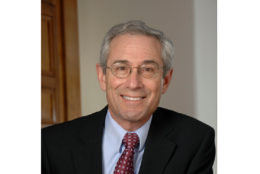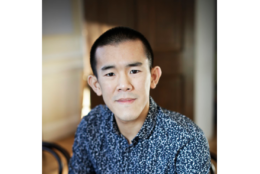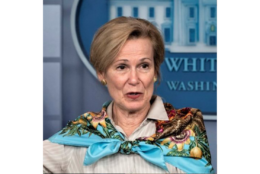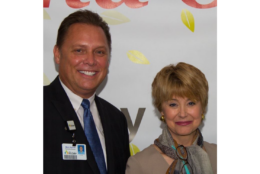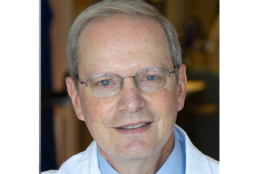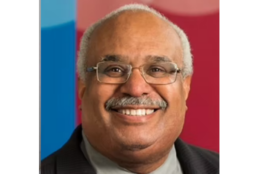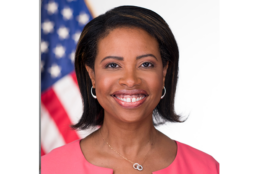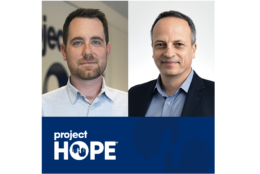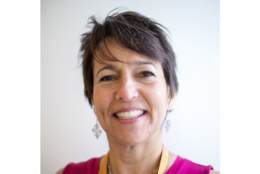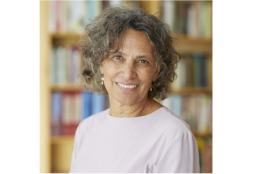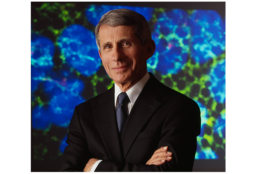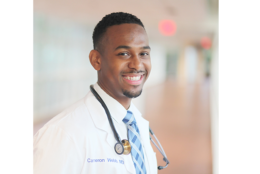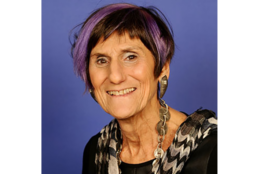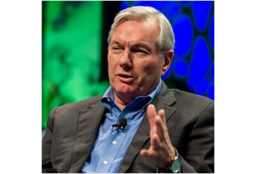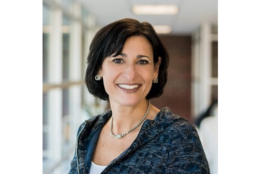Conversations on Health Care
-
Conversations on Health Care hosts Mark Masselli and Margaret Flinter ask him about efforts to build public awareness and support for those with mental health issues.
May 12, 2022 -
The Atlantic staff writer Ed Yong says the threat of future pandemics requires society to aggressively face and fix racial, economic and health disparities.
May 06, 2022 -
Former White House Coronavirus Response Coordinator Dr. Deborah Birx shared her perspective about Vice President Kamala Harris testing positive for COVID with “Conversations on Health Care.”
April 27, 2022 -
Conversations on Health Care hosts Mark Masselli and Margaret Flinter talk exclusively to Jane about this work and with Marc Hackett, CEO of the Jane Pauley Community Health Center.
April 21, 2022 -
Conversations on Health Care hosts Mark Masselli and Margaret Flinter’s full interview with Dr. Wachter is available now.
April 14, 2022 -
Conversations on Health Care hosts Mark Masselli and Margaret Flinter also asked Dr. Benjamin about the reorganization plans for the Centers for Disease Control and Prevention; he says it needs a greater focus on emergency preparedness.
April 07, 2022 -
CMS Administrator Chiquita Brooks-LaSure discusses President Biden’s increased health budget proposal for the US Department of Health and Human Services (HHS) and the Centers for Medicare and Medicaid Services (CMS), which is focused on health equity, mental health parity, and nursing home safety as key goals in the coming year.
March 31, 2022 -
Conversations on Health Care hosts Mark Masselli and Margaret Flinter welcome Project HOPE’s CEO Rabih Torbay and Director of Emergency Response and Preparedness Tom Cotter, who joined the show from the field in Bucharest, Romania. They share the daunting task of providing extensive support and local training to the existing medical infrastructure in handling both the destruction of medical facilities within Ukraine and the millions of refugees in need of medical and behavioral health services as they arrive in neighboring countries. “These people have all experienced trauma,” Cotter said. They are training local laypersons in Psychological First Aid techniques to help the refugees transition to safety. Project HOPE is also keeping supply lines going into Ukraine with desperately needed medical supplies. “Even if this conflict ended tomorrow, the destruction will take years to rebuild,” Torbay said. They expect to be assisting in the region for a long time. And they continue to provide medical support in 30 countries around the world dealing with COVID-19, famine, and military conflict, with a particular focus on women and children’s health.
March 21, 2022 -
This week Dr. Joia Mukherjee, the Chief Medical Officer of Partners in Health, shares memories with Conversations on Health Care hosts Mark Masselli and Margaret Flinter. She explains how the nonprofit’s focus will remain on community health in the countries it serves.
March 14, 2022 -
Dr. Mary Bassett, New York State Commissioner of Health, says the COVID Omicron variant is still exposing health inequities — African Americans in New York have been hospitalized twice as much as the majority population during this latest wave. Bassett says achieving health equity “will be the North Star of my working life as a physician committed to public health.” Bassett also tells Conversations on Health Care hosts Mark Masselli and Margaret Flinter that the state has four times as many hospitalized now compared to the pandemic lull last summer. Yet she also notes the hospitalization and case rates are going down.
February 28, 2022 -
This week, hosts Mark Masselli and Margaret Flinter welcome Dr. Anthony Fauci back to the show, two years after his first appearance discussing the novel coronavirus spreading around the world. The Chief Medical Advisor to the Biden White House and long-time Director of the National Institute for Allergy and Infectious Diseases at the NIH expressed concern over the ongoing political divisiveness impacting our ability to contain COVID outbreaks leading to almost 1 million deaths in this country. He says FDA approval of the mRNA vaccine for young children will likely come on the heels of better data on efficacy with a third dose. He still marvels at the dramatic scientific achievement of the swift development and deployment of an effective vaccine against a challenging new pathogen, which he said would not have happened without decades of committing our resources to scientific research.
February 21, 2022 -
Dr. Cameron Webb, White House Senior Policy Adviser for COVID-19 Equity, is navigating a tricky situation — as he advocates for vaccines, the university where he works just dropped its student vaccine mandate. Webb tells Conversations on Health Care hosts Mark Masselli and Margaret Flinter that he realizes the University of Virginia has some new dynamics to navigate. “There’s this rush to roll back a lot of the strategies that have gotten us to a point where we’re seeing less death,” he says. “This pandemic has been politicized to a point that it’s indistinguishable from the rest of our political rhetoric…rhetoric often meant to motivate a voter base.” Webb also discusses the administration’s efforts to address COVID equity issues, including the need to collect better data about race and ethnicity vaccination rates.
February 14, 2022 -
This week hosts Mark Masselli and Margaret Flinter speak with Congresswoman Rosa DeLauro (D-CT), Chair of the House Appropriations Committee, on her expectations for finding consensus on revised Build Back Better legislation. She says the expanded Child Tax Credit has lifted millions of American children out of poverty, significantly easing economic pressures on working families, and should be restored. She also discusses the President’s infrastructure law, which she says will have a dramatic impact on the nation’s aging transportation and clean water delivery systems, as well as create new jobs.
January 31, 2022 -
This week, hosts Mark Masselli and Margaret Flinter welcome renowned epidemiologist Dr. Michael Osterholm, Director of the Center for Infectious Disease Research and Policy (CIDRAP) at the University of Minnesota, who has served 5 presidential administrations in preparing for pandemics and bio-terror threats. Dr. Osterholm says the highly infectious omicron variant will continue to threaten hospital systems, schools and supply chains, warning the threat of future variants that may evade immunity is still a very real concern. He predicts that a combination of improved vaccines and new therapeutics will render COVID more manageable in the future, but that we will have to learn to 'live with it'.
January 24, 2022 -
This week, hosts Mark Masselli and Margaret Flinter welcome CDC Director Dr. Rochelle Walensky, addressing confusion and frustration around lack of rapid COVID tests and need for more N95 masks for the public. She talks about the shifting plan of action from the Biden Administration in response to the dramatic surge in omicron-driven COVID cases, and the scaled up efforts to make rapid tests and high quality masks available to all Americans.
January 18, 2022

